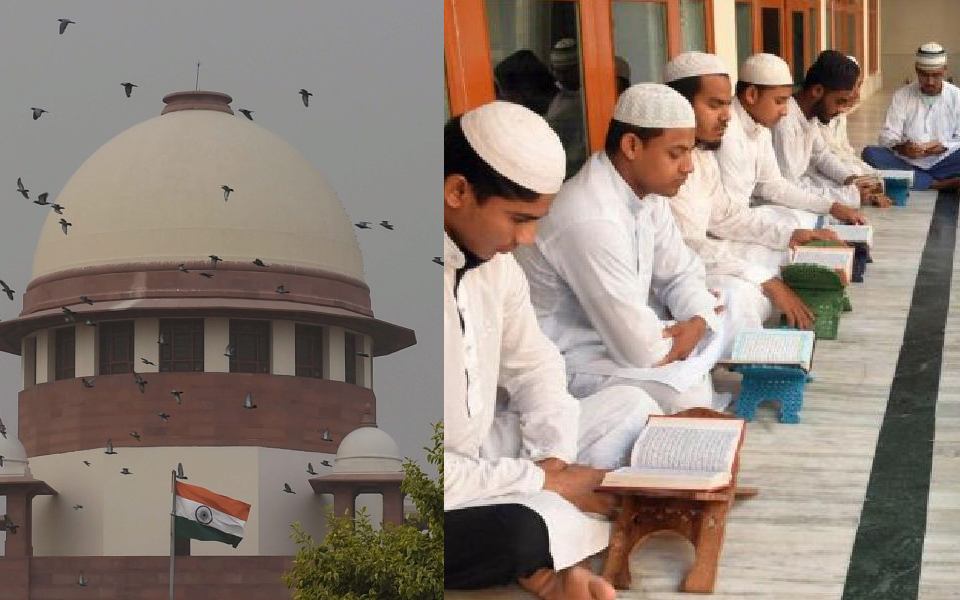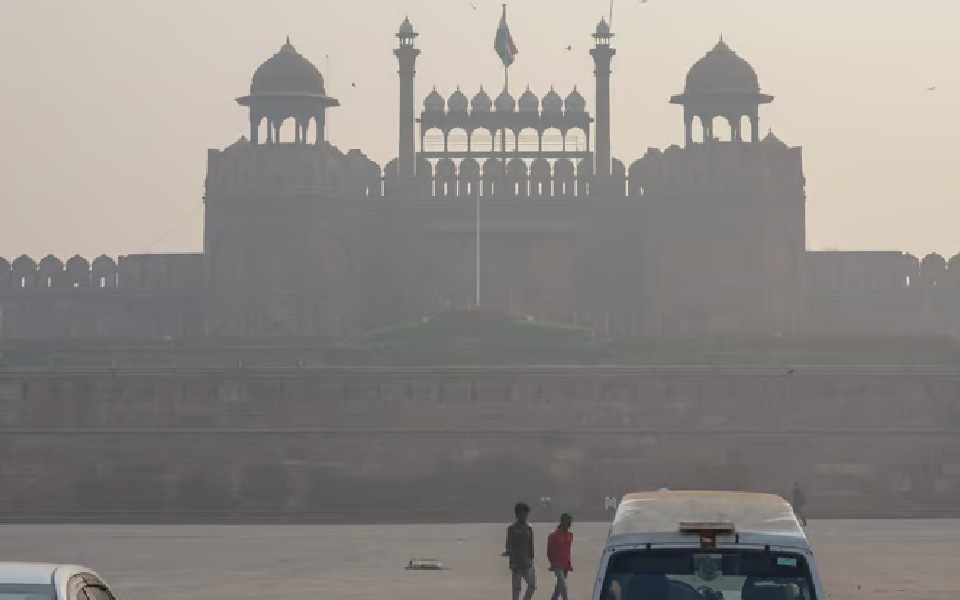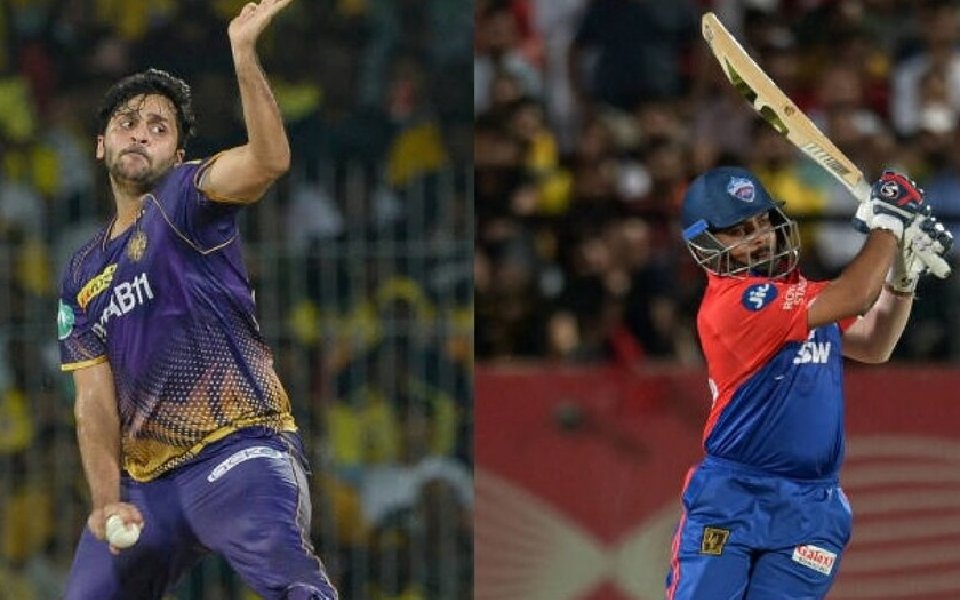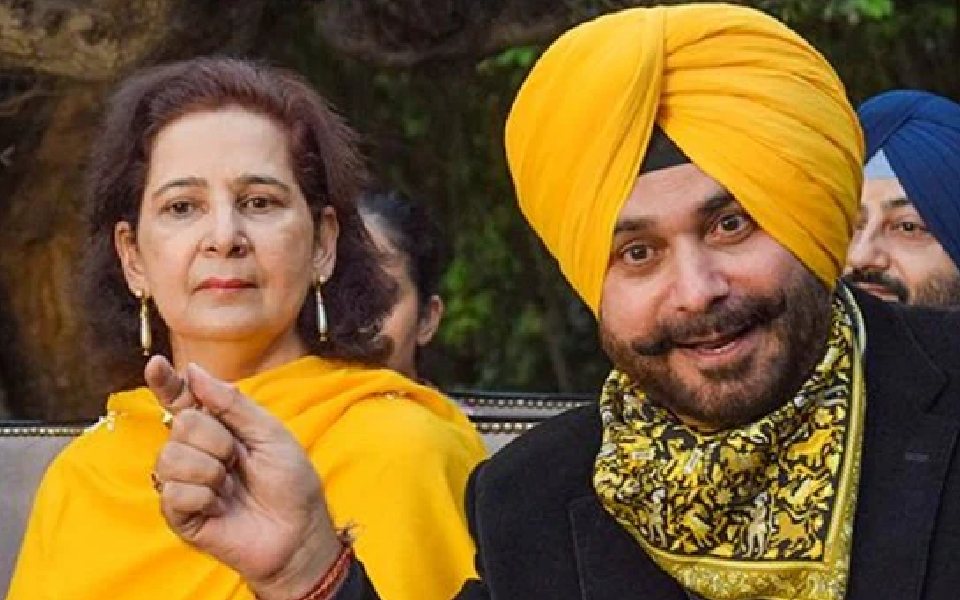New Delhi, Oct 22: Observing secularism means to "live and let live", the Supreme Court on Tuesday said regulating madrasas was in the national interest as several hundred years of the nation’s composite culture could not be wished away by creating silos for minorities.
The observations came from a bench comprising Chief Justice of India (CJI) D Y Chandrachud and Justices J B Pardiwala and Manoj Misra during the day-long hearing on the pleas challenging the Allahabad High Court judgement, which declared the 2004 Uttar Pradesh law on madrasas as unconstitutional saying it was violative of the principle of secularism.
"The judgement is reserved," the bench said at the completion of the arguments.
At the outset, the Uttar Pradesh government, in response to a query of the bench, said it stands by the Uttar Pradesh Board of Madarsa Education Act, 2004 and was of the view that the Allahabad High Court should not have held the entire law as unconstitutional.
Agreeing to the submissions of senior lawyer Mukul Rohatgi, appearing for litigants opposed to the HC verdict, the CJI said, "Secularism means - live and let live."
Referring to the composite national culture, the CJI asked the state government, "Is it not in our national interest that you regulate the madrasas?"
"You cannot wish away several hundred years of history of this nation like this. Suppose, we uphold the high court order and the parents of the children still send them to madrasas then it will just be a silo without any legislative intervention…mainstreaming is the answer to ghettoisation," the bench said.
It said let us preserve India as a melting pot of cultures and religions. "Ultimately we have to see it through the broad sweep of the country. Religious instructions are there not just for Muslims. It is there for Hindus, Sikhs, Christians, etc. The country ought to be a melting pot of cultures, civilisations, and religions. Let us preserve it that way. In fact, the answer to ghettoisation is to allow people to come to the mainstream and to allow them to come together. Otherwise, what we essentially would be doing is to keep them in silos," the CJI said.
The bench said Article 28(3) of the Constitution provides that a student can voluntarily obtain religious instructions with the only bar there should be no compulsion.
It asked as to what was wrong with the law recognising madrasas imparting religious instructions and mandating they should follow certain basic standards and striking down the entire law meant such institutions would remain unregulated.
The bench highlighted that imparting religious instructions was not limited to Muslims only and said if there was an institute training Buddhist monks, could the state ask it to provide some secular education also.
"This is the ethos of our country. Remember, what you are arguing in the context of Islam will apply across all religions in India right from Ved pathshalas to institutions training Buddhist monks, Jain priests, etc.," the CJI said.
The bench said it should not be misunderstood as it was equally concerned that the students of madrasas should also get quality education.
However, quashing the entire law was like throwing out the baby with the bathwater, it said, adding that religious instructions were never an anathema in the country.
Senior lawyer Guru Krishna Kumar said madrasa education would not enable students to be at par with the mainstream students.
"Why do you want them to be at par? You cannot compel them to be at par," the bench said.
Earlier in the day, the bench posed a specific query to Additional Solicitor General K M Natraj, appearing for the state government, on whether he stood by the validity of the law as it provided the authority to regulate madrasas as well.
"Are you standing by the validity of the Act," the CJI asked the law officer when he commenced his submissions on a batch of pleas against the high court verdict.
Natraj said, "I support the validity of the Act. Since, the constitutionality (of the law) has been struck down, we want to say something. We are defending the legislation. The state did not file a SLP (special leave petition)."
The state government filed its response in the high court standing by the Act and it cannot deviate from the stand, the law officer added. The Uttar Pradesh Board of Madarsa Education Act, 2004 regulates the operation of madrasas in the state and was framed to ensure quality education, while adhering to constitutional principles, in such institutions.
On March 22, the Allahabad High Court had declared the Act as "unconstitutional" and violative of the principle of secularism, and asked the state government to accommodate madrasa students in the formal schooling system.
On April 5, the CJI-led bench had provided a breather to about 17 lakh madrasa students by staying the verdict of the High Court scrapping the Uttar Pradesh Board of Madarsa Education Act, 2004.
The top court heard eight petitions, including the lead one filed by Anjum Kadari against the high court verdict.
Let the Truth be known. If you read VB and like VB, please be a VB Supporter and Help us deliver the Truth to one and all.
New Delhi, Nov 25: Delhi's air pollution levels remained alarming on Monday, with the capital's 24-hour average AQI reading soaring to 349 from 318 the previous day, even as the Supreme Court slammed the city government and police for a "serious lapse" in implementing GRAP curbs.
The apex court, however, asked the central pollution watchdog to consider restarting physical classes in the schools and colleges of Delhi-NCR, noting that students are being deprived of mid-day meals and lack the wherewithal to attend virtual classes.
According to the SAMEER app, which offers hourly updates on the National Air Quality Index, the AQI was recorded at 218 at 9 am, but it rose to 377 at 7 pm, thanks to a low wind speed.
Seven of the 38 air quality-monitoring stations in Delhi reported AQI levels in the "severe" category at 5:30 pm, with the number rising to 14 at 7 pm.
The latest data from the Central Pollution Control Board (CPCB) said Delhi's 24-hour average AQI, recorded at 4 pm, stood at 349.
Bhavreen Kandhari, an environmentalist, said the AQI has risen due to a combination of stagnant winds that have a speed of less than 10 kilometres per hour and dropping temperatures that trap pollutants close to the ground.
The CPCB categorises the AQI as follows -- 0-50 (good), 51-100 (satisfactory), 101-200 (moderate), 201-300 (poor), 301-400 (very poor), 401-450 (severe) and above 450 (severe plus).
Last week, the city endured its highest recorded AQI for the season, reaching a hazardous 495, prompting the implementation of the Stage-4 restrictions under the Supreme Court-mandated Graded Response Action Plan (GRAP) to curb pollution.
On Monday, the primary pollutant contributing to the deteriorating air quality was PM2.5, with levels recorded at 166.9 micrograms per cubic metre at 4 pm.
These fine particulate matters with a diameter of 2.5 micrometres or less, pose severe health risks as these can penetrate deep into the lungs and enter the bloodstream.
The drop in the air quality follows a week of hazardous levels of pollution, with Delhi's AQI surpassing 450 for the first time this season last Sunday morning.
Although the air quality improved slightly on Thursday and Friday, it worsened again on Saturday, with the AQI returning to the "severe" category.
As evening descended on Monday, a thick layer of mist and smog covered the city, reducing visibility and exacerbating the air-quality crisis.
Meanwhile, the Supreme Court asked the Commission for Air Quality Management (CAQM) to consider restarting physical classes in schools and colleges in the National Capital Region (NCR) and adjoining areas, noting that students are being deprived of mid-day meals and lack the wherewithal to attend virtual classes.
The restrictions on physical classes in schools and colleges were imposed recently due to severe air pollution.
The court censured the Aam Aadmi Party (AAP) government and Delhi Police for a "serious lapse" on their part in strictly implementing the GRAP-4 measures, and directed the CAQM to take action against the erring officials.
A bench of Justices Abhay S Oka and Augustine George Masih said the authorities have made no efforts to implement the GRAP-4 measures.
"It is apparent that the authorities mentioned in GRAP-IV clauses 1, 2 and 3 have made no earnest efforts to implement action under clauses 1 to 3. Some police teams were deputed at a few entry points, that also without any specific instructions," it said.
The Centre's Decision Support System (DSS) for Air Quality Management estimated that vehicular emissions contributed 16.4 per cent to Delhi's pollution on Monday. Stubble burning, another major factor, accounted for 11 per cent of the capital's pollution on Sunday.
The DSS provides daily estimates for vehicular emissions, while the data on stubble burning is typically released the following day.
Meanwhile, the daytime temperature was recorded at 25.8 degrees Celsius, 0.9 notches below the seasonal average, the India Meteorological Department (IMD) said.
Humidity levels fluctuated between 85 per cent and 68 per cent during the day.
The IMD has forecast moderate fog for Tuesday, with the maximum and minimum temperatures likely to hover around 26 degrees Celsius and 12 degrees Celsius respectively.





